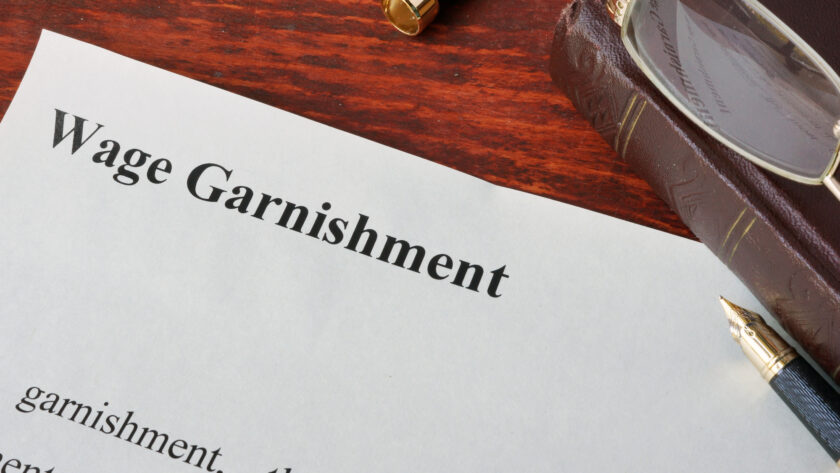Garnished wages occur in various situations. How the garnishment works depends on which of these situations pertains to you. Therefore it’s essential to look at each of these situations separately.
Court Judgments
There are numerous reasons (e.g., defaulted on a loan, stopped paying credit card bills, running up huge medical bills) for garnished wages from a court. Typically these have to do with creditors who choose to sue you for the money you owe them. If you lose, you’ll be served with a document to give to your employer so they can begin withholding part of your wages for your creditor.
There are federal laws regarding how much judgment a creditor can take out of your paycheck. The garnishment is limited to 25% of your disposable earnings after mandatory deductions are removed. This can’t exceed 30 times the federal minimum hourly wage. Some states have established a lower percentage limit for wage garnishments. If you only have one garnishment from a creditor, federal law prohibits you from being retaliated against. However, if you have additional garnishments, you’re no longer protected. Some states will still offer you protection, though.
Child Support and Alimony
Today, all new or modified child support judgments include an automatic order for garnished wages. If child support and alimony are combined (a.k.a., a family support payment), this order will apply to everything you owe. However, if you owe alimony only, you won’t have any garnished wages.
If there’s wage garnishment, either the court or the child’s other parent will send a copy of this order to your employer. They’ll withhold this money and payment for the coverage of health insurance (if applicable) from your paycheck. This can account for as much as 65% of your disposable earnings.
Federal Student Loans
Any agency that attempts to collect for a defaulted student loan can garnish 15% of your paycheck. They do allow you to keep 30 times the current federal minimum wage per week, though. Additionally, they aren’t required to create a lawsuit or court order against you for these
garnished wages. You’ll be notified of these things (e.g., how much you owe, how to get a copy of your loan’s records, how to establish a voluntary repayment schedule, and how to request a hearing) in writing at least 30 days before the garnishment is set to begin.
Back Taxes
When you owe money to the IRS (including state and local tax agencies), it can take a big chunk of your wages without a court order. How much money they allow you to keep depends on how many dependents you have and your standard deduction amount. This will start with the IRS sending a wage levy notice to your employer, who will then give you a copy and an exemption claim form you can fill out. Your state labor department can advise you regarding how much the taxing authority can take in the form of garnished wages.
Stop a Wage Garnishment
There are a few ways in which you can protest a wage garnishment. One is to file papers with the court to get a hearing date where you can present evidence that you either need more of your paycheck to pay your living expenses or that you qualify for an exemption. It’s up to the judge to then decide whether to terminate the garnishment or leave it in place. Another way in which you may be able to stop a wage garnishment is by filing for bankruptcy. If you’re interested in discovering whether either of these things would work for you, contact us at the Jay Weller Legal Group in Tampa, FL, today.





